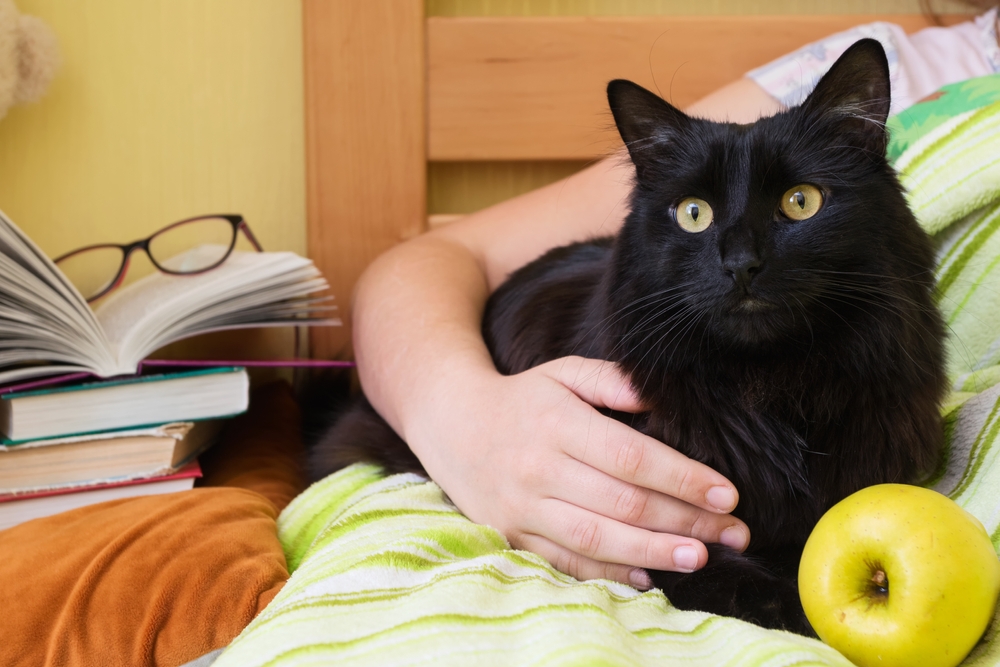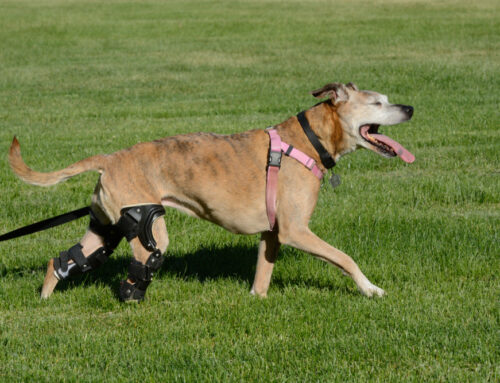To avoid the back-to-school schedule shock, prepare your family—pets included—before the first bell rings. Instead of chasing down the bus with forgotten lunches, and arguing over who was supposed to walk the dog, greet the new school year with ease by following our Veterinary Medical Center of Indian River County team’s five tips to help your pet ace back-to-school time.
#1: Gradually adjust your schedule
Switching abruptly from summer’s carefree agenda to the school year’s demanding schedule can be difficult when the family has to awaken hours earlier. Set your morning alarm earlier each day to help your whole family gradually acclimate to the new school routine.
A few weeks before the first school day, discuss which family members will be responsible for your pet’s care during the morning rush—especially giving them food and water—and immediately after school. Assign each family member a pet-care task, and create a schedule based on the amount of time each task takes. Wake up a few minutes earlier each day to incorporate pet-care duties gradually, which your pet—particularly cats—will find less stressful, as abrupt schedule changes can cause anxiety.
#2: Exercise your pet’s brain and body
Your pet may be bored or stressed—resorting to destructive behavior—once the kids are back in school, and they are home alone for several hours. Before the family heads out each morning, ensure you leave your pet with plenty of physical and mental activities to keep them entertained when they are home alone.
During the school year, the bulk of your pet’s exercise likely occurs on the weekends, but you should set aside time each morning and evening to get your furry pal up and moving. Go for a brisk morning walk or jog before waking the kids, and send your dog and children to the backyard for a game of fetch while you prepare an after-school snack. While your cat may want to continue to snooze when you awaken for the morning routine, encourage them to play with a prey-like toy—a feather wand, fishing pole, or robotic mouse. In the afternoon, incorporate a quick training session to exercise your pet’s brain and body.
Treat puzzles are a good way to stimulate your pet’s mind while they are home alone. An interactive toy or puzzle feeder that dispenses treats encourages your pet to use their brain, and entertains them.
#3: Keep hazardous items out of your pet’s reach

School supplies and gear can create hazards for your pet, as they want to investigate your child’s intriguing backpack or tasty-smelling lunch box, and if your child leaves these items accessible—on the floor or a chair—your pet can get in trouble. If your pet swallows small school supplies—erasers, paper clips, and glue sticks—they can become lodged in their gastrointestinal tract. Your child’s healthy snacks—sugar-free gum, xylitol-containing peanut butter, raisins, grapes, and chocolate—can be toxic to your pet. In addition, if your child takes medication or an inhaler to school, ensure your pet cannot get their paws on them. Teach your child to hang up their backpack and put their lunch box out of your pet’s reach when they come home, to ensure your pet is not tempted to help themselves to an after-school snack of lunch-box leftovers or art supplies.
#4: Watch for your pet’s separation anxiety signs
When your bustling summertime home switches to empty quietness, your pet can develop separation anxiety. Your pet’s separation anxiety signs may include:
- Excessive vocalization
- Pacing
- Heavy panting and drooling
- Trembling
- Destructive behavior (e.g., chewing, scratching, digging)
- Clingy behavior when your family is home
- Inappropriate elimination
Oftentimes, your pet will become agitated and distressed when the family begins their preparations to leave. You may notice the clingy behavior, restless pacing, drooling, and panting, which may turn into barking and scratching at the door when you leave. If your four-legged friend exhibits separation anxiety signs, contact our team for help.
#5: Ensure your pet is up to date on preventive care
If your pet accompanies you to your child’s baseball games, cross-country meets, and other outdoor events, they may be exposed to infectious diseases, so ensure your furry pal is up to date on preventive care, such as vaccinations and parasite prevention medications. In addition, ensure their preventive care is current when you follow new walking routes, schedule canine playdates, or take your dog to day care.
Your child is not the only family member who needs a back-to-school physical, your pet should also have their annual exam. Schedule your pet’s routine checkup with our Veterinary Medical Center of Indian River County team, and ensure they are healthy and ready for the new school year, too.







Leave A Comment